Wicked
Wicked has transcended the traditional boundaries of musical theater and film, captivating audiences with its innovative storytelling and stunning visuals. As a result, the announcement of a Wicked movie adaptation has generated immense excitement in the entertainment industry. This adaptation promises to bring to life the rich tapestry of characters and themes established in the original stage production, which is itself based on Gregory Maguire's novel, Wicked: The Life and Times of the Wicked Witch of the West.
The Origins of Wicked
Wicked began as a book released in 1995 by Gregory Maguire, offering a fresh perspective on "The Wizard of Oz" through the eyes of Elphaba, the wrongly vilified Wicked Witch of the West. The novel explores themes of friendship, power, and social justice, giving depth to characters typically viewed as villains in the original tale, thus reshaping the narrative. This unique perspective captivated readers and eventually caught the attention of the theater world.
Stage Musical Success
The stage adaptation premiered in 2003 on Broadway, with music and lyrics by Stephen Schwartz and a book by Winnie Holzman. It achieved instant success, garnering praise for its inspiring themes and unforgettable soundtrack. The musical explores the lives of Elphaba and Glinda, highlighting their contrasting personalities and the journey of their friendship. With songs like “Defying Gravity” and “Popular,” the musical resonated with audiences around the globe, leading to various national and international tours.
The Transition to Film
The transition from stage to screen is an intricate process that has fueled intense speculation and excitement for years. Initial talks about a film adaptation began in the early 2000s, shortly after the musical's debut. However, the project faced numerous delays and changes in production teams before finally gaining momentum. The film adaptation seeks to capture the essence of the musical while tapping into the cinematic elements that can enhance the story further.
The Vision of the Film
Director Jon M. Chu, known for his work on “Crazy Rich Asians,” has been selected to helm the film adaptation. His vision is to create a visually stunning spectacle that honors the source material while introducing fresh elements. With advancements in CGI and digital effects, the film aims to bring the magical world of Oz to life in ways that were previously impossible on the stage.
The Cast and Characters
A thrilling element of the Wicked film adaptation is the selection of its main characters. Cynthia Erivo has been cast as Elphaba, while Ariana Grande will portray Glinda. Both actresses have extensive backgrounds in music and performance, making them ideal choices for these iconic roles. The chemistry between the two characters will be pivotal, covering their complex relationship and emotional journey throughout the story.
Supporting Characters and World-Building
The casting goes beyond just the main characters; the movie includes a diverse group of supporting roles that enhance the narrative. Characters like the Wizard, Madame Morrible, and Fiyero are integral to the plot, each bringing their unique perspectives and conflicts to the narrative. The film’s team is also tasked with creating a visual and thematic representation of Oz that resonates with audiences while remaining true to the original work.
Musical Elements and Score
The score of Wicked has become a defining element of the production, and the film adaptation will undoubtedly feature the beloved songs from the stage version. Stephen Schwartz, the composer and lyricist, is involved in the film's adaptation, suggesting that audiences can expect new musical numbers while retaining the classic songs that made it a sensational hit. The integration of music into the storytelling will be critical to the emotional impact of the film.
Exploring Themes of Friendship and Power
Wicked delves into significant themes such as friendship, the abuse of power, and the nature of good versus evil. The film adaptation has the potential to explore these themes in a multi-dimensional way suitable for the cinematic format. The complexities of Elphaba’s and Glinda’s characters illustrate how perceptions can radically change based on societal views and the consequences of one’s choices. The narrative emphasizes empathy and understanding over judgment and division.
Production Challenges
Despite its potential, the journey to bring Wicked to the silver screen has not been without challenges. The COVID-19 pandemic caused delays in production schedules, leading to speculation about changes in the overall vision. Adapting a beloved stage musical presents the dual challenge of meeting fan expectations while innovating the story for a new medium. The filmmakers must strike a balance to ensure that both longtime fans and newcomers are engaged with the narrative.
Anticipation and Fan Engagement
The anticipation surrounding the Wicked film adaptation has created a considerable buzz among fans. Social media platforms abound with discussions, fan art, and theories about how the movie will unfold. The film's production team has also engaged directly with fans through announcements and sneak peeks, helping to build excitement. Such engagement is essential in curating a devoted audience who feels connected to the project's progression.
The Impact on the Broadway Community
The announcement of a Wicked film has implications for the Broadway community. As one of the most successful musicals in history, Witch's adaptation could potentially revive interest in theater as a whole. Productions often witness a surge in ticket sales and interest following successful film adaptations of musicals. This interplay between film and theater highlights the interconnectedness of the two art forms and their ability to mutually benefit from each other’s success.
Exploring the Lore of Oz
Wicked also adds layers to the existing lore of Oz, expanding on elements that audiences may only be familiar with from the original Wizard of Oz stories. The film allows for a deeper exploration of the magical world, creating rich backstories for characters and locations. By weaving together various threads from the expansive Oz universe, the adaptation has the opportunity to create a comprehensive narrative that captivates a broad audience.
Visual Effects and Cinematic Techniques
Utilizing cutting-edge visual effects will be crucial in depicting the enchanting world of Oz. The film’s creative team is expected to employ innovative cinematography to create a vibrant and immersive environment. From the vivid landscapes to dynamic character interactions, the intention is to match the ambitious visual style of modern cinematic blockbusters. This commitment to visual storytelling will ensure that audiences are fully immersed in the whimsical elements of the narrative.
Marketing and Outreach
The success of Wicked will certainly heavily depend on its marketing strategy. Given the film’s high profile, promotional campaigns will likely leverage a mix of traditional media and digital platforms to reach diverse audiences. The forthcoming trailers, sneak peeks, and exclusive behind-the-scenes clips are sure to amplify anticipation as we approach the film's premiere. Engaging with well-known influencers and artists can also amplify the film's visibility across various social media channels.
The Cultural Significance of Wicked
Wicked has emerged as a cultural phenomenon since its inception, resonating with audiences for its exploration of themes relevant to contemporary society. Issues of identity, acceptance, and social injustice are as pertinent now as they were at the time of the musical's debut. The film adaptation offers an opportunity to re-examine these themes through a modern lens, sparking conversations that can lead to personal and societal reflections.
Future of Theatre Adaptations
The success of Wicked could herald a new age of theater adaptations in film, bridging the gap between the two mediums. As more musicals garner interest for adaptation, filmmakers may recognize the potential in transforming theatrical narratives into compelling cinematic experiences. This trend could pave the way for other beloved stage productions to be reimagined for the big screen, providing a renewed interest in musical storytelling.

Wicked
To download the app, you will get links to the Official Website and/or official digital markets.


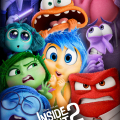
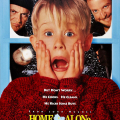





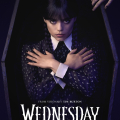
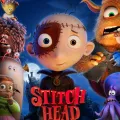









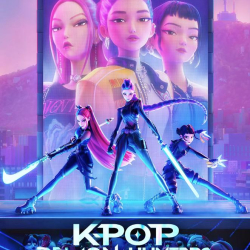
Leave a comment
Your comment is awaiting moderation. We save your draft here
0 Comments